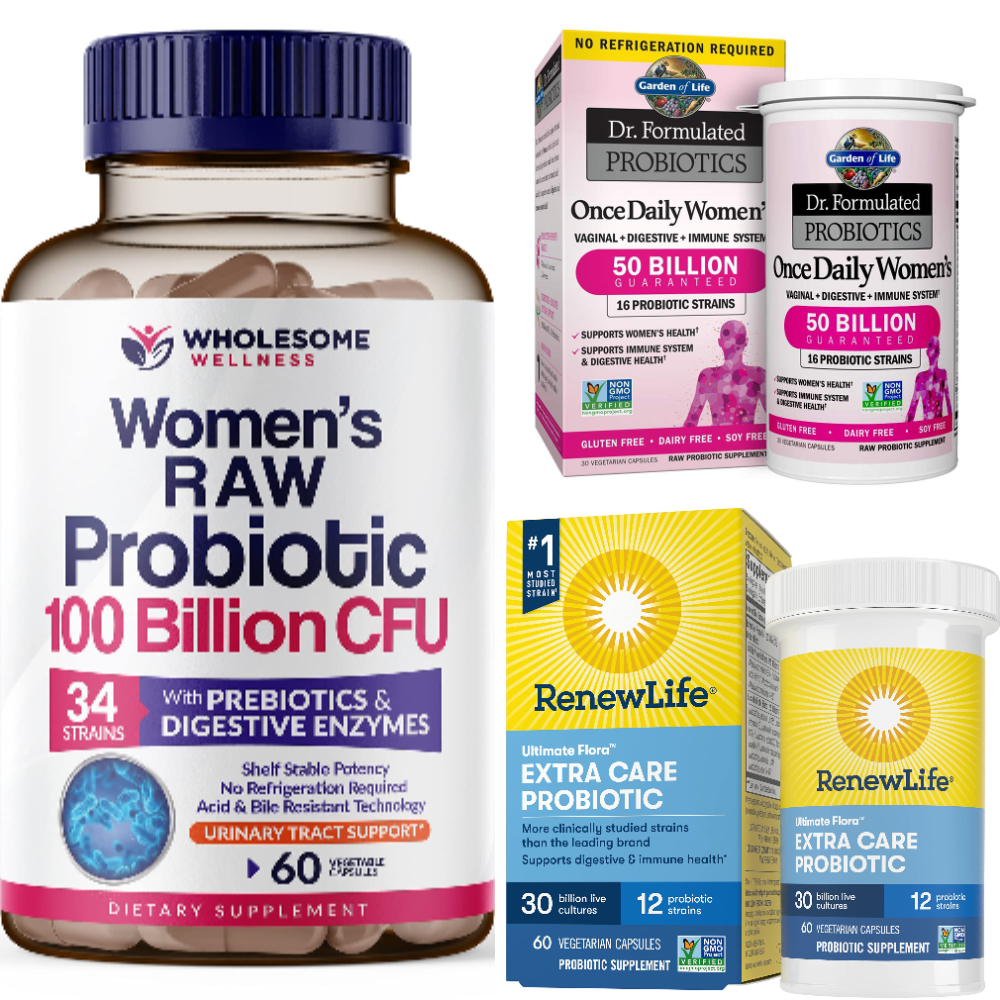Probiotics are live bacteria and yeasts that are good for your digestive system and overall health. By taking the right probiotics, you can improve your digestion, boost your immune system, and even treat various health problems. However, not all probiotics are created equal, and choosing the right one can be overwhelming. In this blog post, we’ll give you tips on how to choose the right probiotic for your digestive health.
Know Your Needs
Before you choose a probiotic, you need to understand your digestive health needs. Do you suffer from IBS, constipation, bloating, or diarrhea? Do you want to boost your immune system or treat a specific health condition? Different strains of probiotics have different benefits, so it’s important to know what you’re looking for. For example, lactobacillus acidophilus can improve lactose intolerance and vaginal health, while bifidobacterium lactis can reduce inflammation and boost immunity.
Look for High-Quality Products
Not all probiotic products are equal in quality. Many products on the market contain few living bacteria or don’t deliver on the promised benefits. Make sure you choose a reputable brand that uses effective strains of bacteria and delivers the right amount to your gut. Look for products that are tested for purity and potency, and choose high-quality and stable forms of probiotics, such as capsules or powders. Avoid products with added sugars, artificial flavors, and preservatives, as they could offset the benefits.
Choose the Right Dosage
Choosing the right dosage is crucial for the effectiveness of probiotics. Dosages vary among products and strains, and different dosages have different effects. Higher doses may work better for treating specific conditions, while lower doses may be beneficial for maintaining overall health. It’s important to follow the instructions on the label and start with smaller doses, especially if you’re trying a new probiotic or have a sensitive gut. You can slowly increase the dose if needed.
Research the Strains
Each strain of probiotic has different properties and benefits. It’s important to choose a strain that has been studied and proven effective for your specific needs. Look for scientific research and clinical trials that support the effectiveness of the strain, and make sure it’s safe for your age, health condition, and medications. Some popular strains of probiotics that have been shown to be beneficial for digestive health include Lactobacillus acidophilus, Bifidobacterium bifidum, Streptococcus thermophilus, and Saccharomyces boulardii.
Check for Compatibility
Probiotics are living organisms that can interact with your gut and other medications. Some probiotics may not be compatible with certain medications, such as antibiotics, or conditions, such as lactose intolerance or gluten sensitivity. It’s important to check with your doctor or pharmacist before taking a new probiotic, especially if you have pre-existing health conditions or are taking other medications. Your healthcare provider can help you choose the right probiotic that won’t interact with your health or medications.


Why are probiotics vital for our health?
Probiotics are crucial for our health because they help balance the 'good' and 'bad' bacteria in our gut. This equilibrium is essential for a well-functioning digestive system, which plays a significant role in our overall health. Probiotics not only aid digestion but also boost the immune system, enhance nutrient absorption, and may even improve mental health.
Furthermore, certain strains of probiotics have been linked to specific health benefits. For example, Lactobacillus rhamnosus GG is known for its ability to alleviate gastroenteritis in children, while Bifidobacterium lactis may boost immunity. So, the use of probiotics can be tailored according to individual health needs or goals, making them a versatile addition to a healthy lifestyle.
What factors should I consider when choosing a probiotic supplement?
When choosing a probiotic supplement, it's important to consider the specific strains it contains. Different strains offer different health benefits, so it's best to choose a supplement that targets your specific symptoms or health goals. For example, if you're looking to improve your digestion, look for strains like Lactobacillus acidophilus and Bifidobacterium bifidum.
Another important factor is the quality of the product. Look for a supplement that contains at least 10 billion CFUs (colony-forming units) per serving, as this indicates a high concentration of probiotics. It's also beneficial to choose a supplement backed by scientific studies, as this ensures its effectiveness and safety. Lastly, pay attention to the delivery mechanism - whether it's capsules, tablets, or powders - as this can affect how the probiotics are absorbed in your body.
How do I know if a probiotic brand is reliable?
A reliable probiotic brand is one that adheres to good manufacturing standards and has relevant certifications. This ensures that the product you're purchasing is of high quality and safe for consumption. You can usually find this information on the company's website or the product packaging.
Moreover, reliable brands are often transparent about the specific strains used in their products and provide scientific evidence to back up their health claims. They may also offer customer support to answer any questions or concerns you have about their products. It's also a good idea to read reviews from other customers to get an idea of the product's effectiveness and the company's reputation.
Should I consult with my doctor before taking a probiotic supplement?
Yes, it's always a good idea to consult with your doctor before starting any new supplement regimen, including probiotics. While probiotics are generally considered safe for most people, they can interact with certain medications and may not be suitable for individuals with specific health conditions.
Your doctor can provide personalized advice based on your health history and current medications. They can also recommend specific strains or brands that might be beneficial for you. Remember, while probiotics offer numerous health benefits, they should not replace a balanced diet and healthy lifestyle but rather complement them.

Choosing the right probiotic for your digestive health doesn’t have to be a daunting task. By understanding your needs, looking for high-quality products, choosing the right dosage and strains, and checking for compatibility, you can find a probiotic that will benefit your gut and overall health. Remember to talk to your healthcare provider before trying a new probiotic to make sure it’s safe and effective for you. With the right probiotic, you can enjoy better digestion, immunity, and overall well-being.












